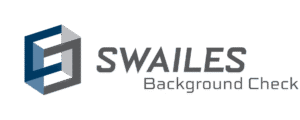When making a hiring decision, many employers want a complete picture of a candidate’s background. Criminal checks, verifications, and reference checks are common. But what about credit checks?
Credit reports can provide useful insight in some cases, yet they’re also heavily regulated, often misunderstood, and not always appropriate. Knowing when and how to use them is essential for staying compliant and fair.
Why Employers Use Credit Checks
Employment credit checks are typically reserved for positions that involve trust, financial responsibility, or access to sensitive data. Examples include:
- Roles handling money or financial transactions.
- Positions in banking, accounting, or government.
- Executive or fiduciary roles where trust and reliability are paramount.
The goal is not to judge someone’s personal life, but to assess whether financial issues may impact their ability to carry out job responsibilities responsibly.
What an Employment Credit Check Includes
It’s important to note that an employment credit report is not the same as a consumer credit score. Employers do not see a candidate’s score.
Instead, the report includes:
- Debt load and payment history.
- Bankruptcies, liens, or civil judgments.
- Public records relevant to financial responsibility.
This information provides context about how a candidate manages financial obligations, but it should be weighed alongside other screening tools.
Compliance Requirements
Because of the sensitivity of financial information, employment credit checks come with strict compliance rules:
- FCRA Compliance – Employers must provide written disclosure, obtain candidate authorization, and follow proper adverse action procedures if the report influences a hiring decision.
- State Restrictions – Some states limit or prohibit credit checks for employment, except for specific job categories.
- Job Relevance – Credit checks should only be used when there is a clear, legitimate business need tied to the position.
Risks of Misuse
Improper use of credit checks can create significant problems for employers. Risks include:
- Legal Liability – Failing to follow FCRA or state rules can result in lawsuits and penalties.
- Discrimination Claims – Inconsistent application of credit checks may be seen as discriminatory.
- Reputation Damage – Overusing credit checks can erode candidate trust and harm employer branding.
Best Practices for Employers
To use credit checks responsibly:
- Limit them to positions where financial responsibility is central.
- Partner with a Consumer Reporting Agency (CRA) like Swailes to ensure compliance.
- Be transparent with candidates, explain why the check is required.
- Always combine credit report results with other screening tools for a fairer assessment.
Employment credit checks can be a valuable tool, but only when applied thoughtfully, legally, and with respect for candidate privacy. For many roles, they’re unnecessary, but in sensitive positions, they can provide critical assurance.
Need Help with Background Checks or Compliance?
Whether you’re hiring new talent or updating your screening processes, the Swailes Background Check team is here to help. From criminal background checks and FCRA compliance to drug testing, employment and education verifications, MVR reports, credit history reviews, and Social Security number validation, we provide fast enrollment and expert support every step of the way.
Contact us today to streamline your screening process with confidence.

